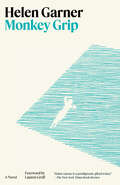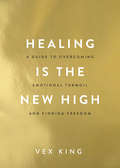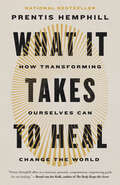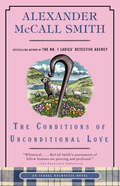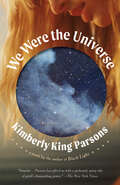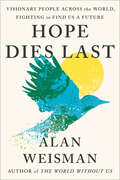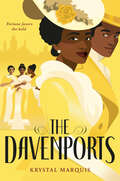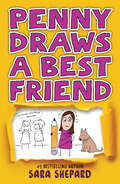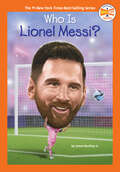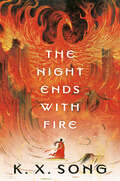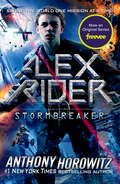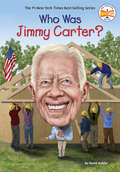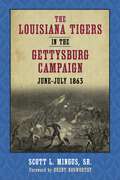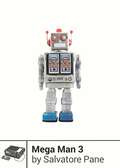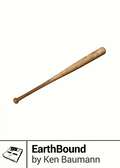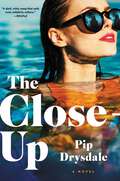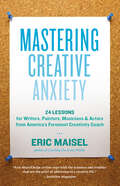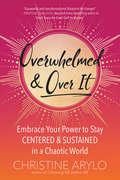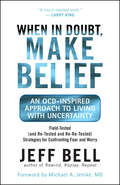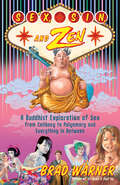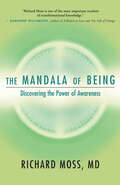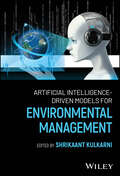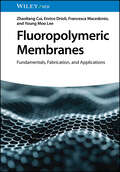- Table View
- List View
Monkey Grip: A Novel
by Helen GarnerThe novel that launched the career of one of Australia&’s greatest writers, following the doomed infatuations of a young, single mother, enthralled by the excesses of Melbourne's late-70s countercultureThe name Helen Garner commands near-universal acclaim. A master novelist, short-story writer, and journalist, Garner is best known for her frank, unsparing, and intricate portraits of Australian life, often drawn from the pages of her own journals and diaries. Now, in a newly available US edition, comes the disruptive debut that established Garner's masterful and quietly radical literary voice.Set in Australia in the late 1970s, Monkey Grip follows single mother and writer Nora as she navigates the tumultuous cityscape of Melbourne&’s bohemian underground, often with her young daughter Gracie in tow. When Nora falls in love with the flighty Javo, she becomes snared in the web of his addiction. And as their tenuous relationship disintegrates, Nora struggles to wean herself off a love that feels impossible to live without.When it first published in 1977, Monkey Grip was both a sensation and a lightning rod. While some critics praised the upstart Garner for her craft, many scorned her gritty depictions of the human body and all its muck, her frankness about sex and drugs and the mess of motherhood, and her unabashed use of her own life as inspiration. Today, such criticism feels old-fashioned and glaringly gendered, and Monkey Grip is considered a modern masterpiece.A seminal novel of Australia&’s turbulent 1970s and all it entailed—communal households, music, friendships, children, love, drugs, and sex—Monkey Grip now makes its long-overdue American debut.
Healing Is the New High: A Guide to Overcoming Emotional Turmoil and Finding Freedom
by Vex KingAchieve genuine inner healing, let go of past trauma and find clarity, resilience and freedom with #1 Sunday Times bestselling author Vex King. Vex King developed inner healing techniques to help him find freedom from his troubled past and heal his emotional pain and trauma. Since then he&’s helped hundreds of thousands of people to move forward on their own healing journey. In this book, Vex provides an experience of healing through the layers of the self using yogic principles and unique practices. These techniques are simple, accessible and have the power to produce exceptional results. They include: · Working with your body&’s energy· Exploring and raising your inner vibration · Creating positive relationships · Exploring your personal history and rewriting limiting beliefs · Uncovering your true self and reigniting your fireTaking charge of your inner healing is one of the greatest acts of self-love. By committing to this process and raising your vibration – the energy that courses through you and you radiate out into the world – you&’ll create space to welcome more joyful experiences into your life.
What It Takes to Heal: How Transforming Ourselves Can Change the World
by Prentis HemphillNATIONAL BESTSELLER • From one of the most prominent voices in the trauma conversation comes a groundbreaking new way to heal on a personal and a collective level, showing us that we don&’t have to carry our emotional burdens alone.&“I love this book.&”—Bessel van der Kolk, author of The Body Keeps the Score&“In a time when so many of us are being trained in cynicism, this book stands in necessary defiance.&”—Cole Arthur Riley, author of Black Liturgies and This Here FleshWhat It Takes to Heal asserts that the principles of embodiment—the recognition of our body&’s sensations and habits, and the beliefs that inform them—are critical to lasting healing and change. Hemphill, an expert embodiment practitioner, therapist, and activist who has partnered with Brené Brown, Tarana Burke, and Esther Perel, among others, demonstrates a future in which healing is done in community. Hemphill weaves together stories from their own experience as a trauma survivor with clinical accounts and lessons learned from their time as a social movement architect. They ask, &“What would it do to movements, to our society and culture, to have the principles of healing at the very center? And what does it do to have healing at the center of every structure and everything we create?&”In this life-affirming framework for the way forward, Hemphill shows us how to heal our bodies, minds, and souls—to develop the interpersonal skills necessary to break down the doors of disconnection and take the necessary risks to reshape our world toward justice.
The Conditions of Unconditional Love: An Isabel Dalhousie Novel (15) (Isabel Dalhousie Series)
by Alexander McCall SmithEveryone&’s favorite moral philosopher and amateur sleuth, Isabel Dalhousie, is back and once again finds herself facing a number of tricky situations and philosophical questions, both public and private.&“McCall Smith&’s assessments of fellow humans are piercing and profound . . . [His] depictions of Edinburgh are vivid and seamless.&” —San Francisco ChronicleIt seems as if Isabel&’s life has fallen into a comfortable and tidy rhythm. Well, as tidy as things can be with two small boys wreaking havoc around the house. But when her husband, Jamie, invites a woman named Dawn—recently embroiled in a contentious affair with a member of Jamie&’s orchestra—to stay with them, things begin to go awry. Strange noises can be heard from the upper floor, even when Dawn is supposedly at work, and the couple wonders whether something more nefarious may be afoot.If that weren&’t enough, Professor Robert Lettuce is staging an academic conference and has asked Isabel to publish the conference papers in a special issue of the Review of Applied Ethics. But something is definitely suspect about the funding, and it will be up to Isabel to sort it out. As the truth comes to light, Isabel must once more rely on her kindness, powers of deduction and philosophical expertise to navigate these sensitive matters.
We Were the Universe: A novel
by Kimberly King ParsonsA TIME MUST-READ BOOK OF THE YEAR • A young mother, in denial after the death of her sister, navigates the dizzying landscapes of desire, guilt, and grief in this darkly comic, highly anticipated debut novel from Kimberly King Parsons, author of the story collection, Black Light (long-listed for the National Book Award)."Kimberly King Parsons sings the lushest, cruelest, kindest, weirdest, darkest and most hilarious songs on paper; I want to hang these sentences in my house and admire them like the interdimensional multisensory illuminated artworks they truly are." —Karen Russell, Pulitzer Prize finalist and author of Swamplandia!The trip was supposed to be fun. When Kit&’s best friend gets dumped by his boyfriend, he begs her to ditch her family responsibilities for an idyllic weekend in the Montana mountains. They&’ll soak in hot springs, then sneak a vape into a dive bar and drink too much, like old times. Instead, their getaway only reminds Kit of everything she&’s lost lately: her wildness, her independence, and—most heartbreaking of all—her sister, Julie, who died a few years ago.When she returns home to the Dallas suburbs, Kit tries to settle in to her routine—long afternoons spent caring for her irrepressible daughter, going on therapist-advised dates with her concerned husband, and reluctantly taking her mother&’s phone calls. But in the secret recesses of Kit&’s mind, she&’s reminiscing about the band she used to be in—and how they&’d go out to the desert after shows and drop acid. She&’s imagining an impossible threesome with her kid&’s pretty gymnastics teacher and the cool playground mom. Keyed into everything that might distract from her surfacing pain, Kit spirals. As her already thin boundaries between reality and fantasy blur, she begins to wonder: Is Julie really gone?Neon bright in its insight, both devastating and laugh-out-loud funny, We Were the Universe is an ambitious, inventive novel from a revelatory new voice in American fiction—a fearless exploration of sisterhood, motherhood, friendship, marriage, psychedelics, and the many strange, transcendent shapes love can take.
Hope Dies Last: Visionary People Across the World, Fighting to Find Us a Future
by Alan WeismanOne of Heatmap's 18 Climate Books to Read in 2025The award-winning environmental journalist&’s extraordinary, long-awaited portrait of hope and resilience as we face a fractured and uncertain futureIn this profoundly human and moving narrative, the bestselling author of The World Without Us returns with a book ten years in the making: a study of what it means to be a human on the front lines of our planet&’s existential crisis. His new book, Hope Dies Last, is a literary evocation of our current predicament and the core resolve of our species against the most precarious odds we have ever faced.To write this book, Weisman traveled the globe, witnessing climate upheaval and other devastations, and meeting the people striving to mitigate and undo our past transgressions. From the flooding Marshall Islands to revived wetlands in Iraq, from the Netherlands and Bangladesh to the Korean DMZ and to cities and coastlines in the U.S. and around the world, he has encountered the best of humanity battling heat, hunger, rising tides, and imperiled nature. He profiles the innovations of big thinkers—engineers, scientists, conservationists, economists, architects, and artists—as they conjure wildly creative, imaginative responses to an uncertain, ominous future. At this unprecedented point in history, as our collective exploits on this planet may lead to our own undoing and we could be among the species marching toward extinction, they refuse to accept defeat.Hope Dies Last fills a crucial gap in the global conversation: Having reached a point of no return in our climate confrontation, how do we feel, behave, act, plan, and dream as we approach a future decidedly different from what we had expected?
The Bomber Boys: Heroes Who Flew the B-17s in World War II
by Travis L. AyresTrue tales of heroism and the men who fought and died in the skies of World War II Europe.In World War II, there were all too many ways for a fighting man to die. But no theater of operations offered more fatal choices than the skies above Nazi-occupied Europe. Inside of a B-17 Bomber, thousands of feet above the earth, death was always a moment away. From the hellish storms of enemy flak and relentless strafing of Luftwaffe fighters, to mid-air collisions, mechanical failure, and simple bad luck, it&’s a wonder any man would volunteer for such dangerous duty. But some very brave men did. Some paid the ultimate price. Some made it home. But in the end, all would achieve victory. Here, author Travis L. Ayres has gathered a collection of previously untold personal accounts of combat and camaraderie aboard the B-17 Bombers that flew countless sorties against the enemy, as related by the men who lived and fought in the air—and survived. They are stories of heroism, sacrifice, miraculous survival and merciless warfare. But they should all be remembered...INCLUDES PHOTOS
The Davenports
by Krystal Marquis*Instant New York Times Bestseller*The Davenports delivers a totally escapist, swoon-worthy romance while offering a glimpse into a period of African American history often overlooked."The perfect read for fans of escapist historical fiction.&” —NBC&’s TODAYThe Davenports are one of the few Black families of immense wealth and status in a changing United States, their fortune made through the entrepreneurship of William Davenport, a formerly enslaved man who founded the Davenport Carriage Company years ago. Now it's 1910, and the Davenports live surrounded by servants, crystal chandeliers, and endless parties, finding their way and finding love—even where they&’re not supposed to.There is Olivia, the beautiful elder Davenport daughter, ready to do her duty by getting married . . . until she meets the charismatic civil rights leader Washington DeWight and sparks fly. The younger daughter, Helen, is more interested in fixing cars than falling in love—unless it&’s with her sister&’s suitor. Amy-Rose, the childhood friend turned maid to the Davenport sisters, dreams of opening her own business—and marrying the one man she could never be with, Olivia and Helen&’s brother, John. But Olivia&’s best friend, Ruby, also has her sights set on John Davenport, though she can&’t seem to keep his interest . . . until family pressure has her scheming to win his heart, just as someone else wins hers.Inspired by the real-life story of the Patterson family, The Davenports is the tale of four determined and passionate young Black women discovering the courage to steer their own path in life—and love."The Davenports has it all: romance, heartbreak, courage." —Ebony"A fresh, utterly enchanting read.&” —Ayana Gray, New York Times bestselling author of the Beasts of Prey trilogy"Deftly written . . . A dazzling debut." —Kirkus (starred review)"Stunningly wrought . . . Presents a cast of take-charge women." —PW (starred review)"It has the compulsive readability of Gossip Girl." —Booklist (starred review)"Compelling . . . distinct and satisfying." —BCCB"Skilled . . . Well-written . . . Sure to please." —SLJ"If this whole series existed right now, I&’d tear through it to the exclusion of everything else in my life." —Teen Librarian Toolbox
Penny Draws a Best Friend (Penny Draws #1)
by Sara ShepardA humorous, heartfelt, highly illustrated middle grade series about friendship, feelings, and finding your people, from #1 New York Times bestselling author Sara Shepard.Why does the cubby room always smell like farts? Who etched the words "I Am Bug Man" inside my desk? Why is Mom suddenly acting like she has a secret?Nobody said starting fifth grade would be easy, and Penny Lowry's anxiety means a million questions are always spinning through her thoughts. Luckily she's got a lot to look forward to, like her favorite after-school activity, Art Club, and seeing her best friend Violet again after spending the whole summer apart.The thing is, Violet has been acting weird ever since she got back. She never wants to hang out anymore, says Art Club is for babies, and spends all her time with Riley, the meanest girl in school. Did Penny do something wrong? And if she did, can she undo it?In this hilariously sweet introduction to a lovable kid still figuring out how to manage her anxiety, the author of the #1 bestselling Pretty Little Liars series gets to the heart of how to let go of the friends who aren&’t right for you . . . and how to make room for the ones who are.
Who Is Lionel Messi? (Who HQ Now)
by James Buckley Jr. Who HQRead all about Argentinian soccer superstar Lionel Messi and his legendary career in this book from Who HQ Now, the series featuring the trending topics and news makers of today.Lionel Messi loved soccer from an early age, often playing with his family members with encouragement from his grandmother. Now, he is regarded as one of the greatest players of all time! He is also one of the most decorated footballers in the world--having won 44 collective trophies, including seven Ballon d'Or awards, 2009 FIFA World Player of the Year, 2019 and 2022 Best FIFA Men's Player, and more. From making his first team debut at just sixteen years old in 2003 to breaking numerous longstanding records in 2012, to helping Argentina win the 2022 World Cup, Messi continues to wow fans with his finesse of the soccer ball. However, Lionel Messi stays true to his roots, never forgetting a small tribute to his grandmother each time he scores a goal by looking up and pointing to the sky. Learn about Lionel's epic career and his lifelong love for soccer in this illustrated biography for young readers.
The Night Ends with Fire (The Dragon Spirit Duology)
by K. X. SongAn instant New York Times and USA Today bestseller!An Indie Next pick!Infused with magic and romance, this sweeping fantasy adventure inspired by the legend of Mulan follows a young woman determined to choose her own destiny—even if that means going against everyone she loves.The Three Kingdoms are at war, but Meilin&’s father refuses to answer the imperial draft. Trapped by his opium addiction, he plans to sell Meilin for her dowry. But when Meilin discovers her husband-to-be is another violent, ill-tempered man, she realizes that nothing will change for her unless she takes matters into her own hands.The very next day, she disguises herself as a boy and enlists in her father&’s place.In the army, Meilin's relentless hard work brings her recognition, friendship—and a growing closeness with Sky, a prince turned training partner. But has she simply exchanged one prison for another? As her kingdom barrels toward destruction, Meilin begins to have visions of a sea dragon spirit that offers her true power and freedom, but with a deadly price.With the future of the Three Kingdoms hanging in the balance, Meilin will need to decide whom to trust—Sky, who inspires her loyalty and love; the sea dragon spirit, who has his own murky agenda; or an infuriating enemy prince who makes her question everything she once knew—about her kingdom and about her own heart.
Stormbreaker (Alex Rider #1)
by Anthony HorowitzAlex Rider is now an IMDb TV/Amazon Original Series!Meet the orphan turned teen superspy who's saving the world one mission at a time—from #1 New York Times bestselling author! They said his uncle Ian died in a car accident. But Alex Rider knows that&’s a lie, and the bullet holes in the windshield prove it. Yet he never suspected the truth: his uncle was really a spy for Britain&’s top secret intelligence agency. And now Alex has been recruited to find his uncle&’s killers . . .Alex Rider's is debut mission is packed with bonus material - including an extra Alex Rider short story, a letter from Anthony Horowitz, and much more!From the author of Magpie Murders and Moriarty. &“Slam-bang action, spying and high-tech gadgets . . . a non-stop thriller!&”—Kirkus Reviews
Who Was Jimmy Carter? (Who Was?)
by David Stabler Who HQHow did a peanut farmer from a small town in Georgia become the 39th President of the United States? Find out in this addition to the #1 New York Times best-selling Who Was? series!Everyone was rather surprised when small-town farmer Jimmy Carter first announced that he&’d be running for president in 1976. When Jimmy told his mother, she replied, &“President of what?&” But this former naval officer and governor of Georgia was ready for the role.Jimmy Carter went on to become one of America&’s most beloved political figures thanks to his honesty, strong faith, and compassion. Today, Jimmy Carter is remembered for his dedication to helping Americans through his extensive work as a philanthropist. He and his wife, Rosalynn, volunteered with Habitat for Humanity, building houses for the less fortunate and inspiring others to a life of service.Who Was Jimmy Carter? details the entire life of Jimmy Carter, beginning with his 1924 birth in Plains, Georgia. Readers will learn about his life as a peanut farmer, a Sunday school teacher, a president, a Nobel Prize winner, and more.
The Louisiana Tigers in the Gettysburg Campaign, June-July 1863: The Civil War Letters of the Pierson Family
by Scott L. Mingus Sr.Previous works on Confederate brigadier general Harry T. Hays's First Louisiana Brigade -- better known as the "Louisiana Tigers" -- have tended to focus on just one day of the Tigers' service -- their role in attacking East Cemetery Hill at Gettysburg on July 2, 1863 -- and have touched only lightly on the brigade's role at the Second Battle of Winchester, an important prelude to Gettysburg. In this commanding study, Scott L. Mingus, Sr., offers the first significant detailed exploration of the Louisiana Tigers during the entirety of the 1863 Gettysburg Campaign. Mingus begins by providing a sweeping history of the Louisiana Tigers; their predecessors, Wheat's Tigers; the organizational structure and leadership of the brigade in 1863; and the personnel that made up its ranks. Covering the Tigers' movements and battle actions in depth, he then turns to the brigade's march into the Shenandoah Valley and the Tigers' key role in defeating the Federal army at the Second Battle of Winchester. Combining soldiers' reminiscences with contemporary civilian accounts, Mingus breaks new ground by detailing the Tigers' march into Pennsylvania, their first trip to Gettysburg in the week before the battle, their two-day occupation of York, Pennsylvania -- the largest northern town to fall to the Confederate army -- and their march back to Gettysburg. He offers the first full-scale discussion of the Tigers' interaction with the local population during their invasion of Pennsylvania and includes detailed accounts of the citizens' reactions to the Tigers -- many not published since appearing in local newspapers over a century ago.Mingus explores the Tigers' actions on the first two days of the Battle of Gettysburg and meticulously recounts their famed assault on East Cemetery Hill, one of the pivotal moments of the battle. He closes with the Tigers' withdrawal from Gettysburg and their retreat into Virginia. Appendices include an order of battle for East Cemetery Hill, a recap of the weather during the entire Gettysburg Campaign, a day-by-day chronology of the Tigers' movements and campsites, and the text of the official reports from General Hays for Second Winchester and Gettysburg. Comprehensive and engaging, Mingus's exhaustive work constitutes the definitive account of General Hays's remarkable brigade during the critical summer of 1863.
Mega Man 3 (Boss Fight Books)
by Salvatore PaneCapcom's Keiji Inafune followed the unexpected success of Mega Man 2 with a kitchen sink sequel that included eight new robot masters, a canine companion, a mysterious new frenemy, and a melancholy tone that runs through the game from its soft opening notes. Mega Man 3 was the biggest, messiest, and most ambitious Mega Man game yet. But why do we hunger for twitchy, difficult platformers like Mega Man 3 decades later when the developers, the franchise, and the Blue Bomber himself have all moved on? Investigating the development of the Mega Man series alongside the rise of video game emulation, the YouTube retrogaming scene, and the soaring price of NES carts, novelist Salvatore Pane takes a close and compelling look at the lost power-ups of our youth that we collect in our attempts to become complete again.
EarthBound (Boss Fight Books)
by Ken BaumannAn RPG for the Super NES that flopped when it first arrived in the U.S., EarthBound grew in fan support and critical acclaim over the years, eventually becoming the All-Time Favorite Game of thousands, among them author Ken Baumann. Featuring a heartfelt foreword from the game's North American localization director, Marcus Lindblom, Baumann's EarthBound is a joyful tornado of history, criticism, and memoir. Baumann explores the game&’s unlikely origins, its brilliant creator, its madcap plot, its marketing failure, its cult rise from the ashes, and its intersections with Japanese and American culture, all the while reflecting back on the author's own journey into the terrifying and hilarious world of adults.
The Close-Up
by Pip DrysdaleAfter reconnecting with an ex—now a Hollywood star—a struggling author discovers the dark side of fame when a stalker begins reenacting violent events from her novel.When Zoe Ann Weiss moves to Los Angeles to pursue her dream of becoming a writer, her whole future is wide open. But then Zach, the bartender and aspiring actor she&’s falling for, ghosts her. Her debut novel, a thriller, fails. And she has writer&’s block worse than ever before. Now, three years later, Zach is famous and Zoe is facing a dead-end job at a flower shop and a demanding agent, terrified she&’ll never get her life back on track. But when she makes a flower delivery and unexpectedly finds Zach at the address, it&’s like no time has passed. They start casually dating in secret and Zoe starts writing again—the first time she&’s felt inspired in months. Then the inevitable happens and photos are leaked, landing Zoe in the press. Her first book goes viral, and everyone seems to know her name. Except the problem with everyone knowing your name is that everyone knows your name—including a mysterious stalker obsessed with Zach. A stalker who starts re-creating violent scenes from Zoe&’s book, step-by-step. And Zoe knows exactly how this story ends…
Mastering Creative Anxiety: 24 Lessons for Writers, Painters, Musicians, and Actors from America's Foremost Creativity Coach
by Eric MaiselIn his decades as a psychotherapist and creativity coach, Eric Maisel has found a common thread behind what often gets labeled “writer’s block,” “procrastination,” or “stage fright.” It’s the particular anxiety that, paradoxically, keeps creators from doing, completing, or sharing the work they are driven toward. This “creative anxiety” can take the form of avoiding the work, declaring it not good enough, or failing to market it — and it can cripple creators for decades, even lifetimes. But Maisel has learned what sets successful creators apart. He shares these strategies here, including artist-specific stress management; how to work despite bruised egos, day jobs, and other inevitable frustrations; and what not to do to deal with anxiety. Implementing these 24 lessons replaces the pain of not creating with the profound rewards of free artistic self-expression.
Overwhelmed and Over It: Embrace Your Power to Stay Centered and Sustained in a Chaotic World
by Christine AryloLiberate Yourself From Stress And Overwhelm! If you&’re like most women, you&’ve discovered that the tasks and pressures never end in our culture, a culture built for burnout. But there&’s a way to stop stressing and start thriving — to wake up to the underlying systems and unsustainable ways of working and living that sap your strength, drain you dry, and fragment your focus. Feminine wisdom leader Christine Arylo is on your side, as she shines a light on the external forces and internal imprints that push you into overwhelm and self-sacrifice. She then shows you how to access your power to achieve what matters most, including receiving what you need and desire. You&’ll learn to release the old approach to working, succeeding, and managing a full life, and embrace a new way that gives you clarity and courage to make choices in your day-to-day and overall life design that support and sustain you.
When in Doubt, Make Belief: An OCD-Inspired Approach to Living with Uncertainty
by Jeff BellWhen in doubt, make belief. For author and news anchor Jeff Bell, these are words to live by. Literally. As someone who has spent much of his life battling severe obsessive compulsive disorder (OCD), Bell has had to overcome crippling uncertainty few people can imagine. In this powerful follow-up to his critically acclaimed memoir, Rewind, Replay, Repeat, Bell expounds on the principles of applied belief that allowed him to make such a remarkable recovery from this “doubting disease” and the lessons he’s learned while traveling the country talking about doubt. With the help of more than a dozen leading experts, Bell offers readers practical techniques for pushing through the discomfort of uncertainty — whether it stems from OCD or just everyday worries — and demonstrates how a shift from decisions based on fear and doubt to ones based on purpose and service can transform any life. Featuring interviews with Sylvia Boorstein, Patty Duke, Dan Millman, Leon Panetta, Tom Sullivan, and others
Sex, Sin, and Zen: A Buddhist Exploration of Sex from Celibacy to Polyamory and Everything in Between
by Brad WarnerWith his one-of-a kind blend of autobiography, pop culture, and plainspoken Buddhism, Brad Warner explores an A-to-Z of sexual topics — from masturbation to dating, gender identity to pornography. In addition to approaching sexuality from a Buddhist perspective, he looks at Buddhism — emptiness, compassion, karma — from a sexual vantage. Throughout, he stares down the tough questions: Can prostitution be a right livelihood? Can a good spiritual master also be really, really bad? And ultimately, what's love got to do with any of it? While no puritan when it comes to non-vanilla sexuality, Warner offers a conscious approach to sexual ethics and intimacy — real-world wisdom for our times.
The Mandala of Being: Discovering the Power of Awareness
by Richard MossThe Mandala of Being shows us why and how we habitually obstruct our innate potential for what Richard Moss calls radical aliveness, a life of authenticity, overflowing energy, and joy. In these pages, Richard Moss gives us an effective practice that is readily incorporated into day-to-day life. It illustrates that there are in fact only four places our minds ever go when we leave the Now — the past, the future, judgments of ourselves, and judgments of others. It allows us to trace precisely the path we have taken away from our most authentic and essential being whenever we are not fully present, and simultaneously shows us the way home. Drawing from his profound self-realization and more than three decades of working with people of diverse backgrounds, Richard Moss accompanies and encourages the reader on a journey toward freedom from fear and any other limiting or threatening feeling. Deep self-understanding, inner ease, spontaneous healing, more fulfilling relationships, and enhanced creativity are all wonderful blessings that can arise from reading and reflecting on The Mandala of Being.
Disney/Pixar The Art of Elio (Disney/Pixar)
by Pixar Animation StudiosThis stunning book showcases the art, behind-the-scenes details, and making of the Disney and Pixar animated film ElioThe next in the fan-favorite, collectible Disney and Pixar Art of series, The Art of Elio presents the story behind the out-of-this-world film from Pixar Animation Studios. Adventure across the galaxy with alien-obsessed Elio in this essential story of connection, friendship, and searching for your place in the world, or in this case, universe. This book highlights the stunning artwork from the film's creation—including character designs, storyboards, color scripts, and much more—and features exclusive interviews with the creative team along with behind-the-scenes details. This book is the perfect gift for aspiring artists, animators, film buffs, and fans.© 2025 Disney Enterprises, Inc. and Pixar. All rights reserved. EXCLUSIVE LOOK AT ANIMATION FILMMAKING: Fans will want to delve into and explore this Pixar Animation film through production art, stories, and making-of details exclusive to this book.PART OF THE FAN-FAVORITE SERIES: The collectible Art of series is perfect for animation enthusiasts, filmmakers, students, and fans of Disney and Pixar. Add The Art of Elio to the shelf with other bestselling books like The Art of Elemental, The Art of Turning Red, and The Art of Soul.Perfect for:Animators and animation studentsDisney fans of all agesCinephiles and movie buffsPop culture enthusiasts and historiansFamilies that love watching Disney and Pixar films togetherFans of sci-fi books and moviesPeople interested in aliens, extraterrestrials, space, and space travel
Artificial Intelligence-Driven Models for Environmental Management
by Shrikaant KulkarniStep-by-step guidelines for the development of artificial neural network-based environmental pollution models Artificial Intelligence-Driven Models for Environmental Management delves into the application of AI across a plethora of areas in environmental management, including climate forecasting, natural resource optimization, waste management, and biodiversity conservation. This book shows how AI can help in monitoring, predicting, and mitigating environmental impacts with tremendous accuracy and speed by leveraging machine learning, deep learning, and other data-driven models. The methodologies explored in this volume reflect a synthesis of computational intelligence, data science, and ecological expertise, underscoring how AI-driven systems have been making strides in managing and preserving our planet’s natural resources. The text is structured to guide readers through numerous AI models and their practical environmental management applications, showcasing theoretical foundations as well as case studies. This book also addresses the challenges and ethical considerations related to deploying AI in ecological contexts, underscoring the importance of transparency, inclusivity, and alignment with sustainability goals. Sample topics discussed in Artificial Intelligence-Driven Models for Environmental Management include: Tools and methods for monitoring and predicting environmental pollutants faster and more accuratelyAI technology for the protection of water supplies from contamination to produce healthier foodsUse of AI for the evaluation of the impacts of environmental pollution on human healthAI and waste management technologies for sustainable agriculture and soil managementThe role of AI in environmental research and sustainability and key social and economic aspects of natural resource management through AI Artificial Intelligence-Driven Models for Environmental Management is a timely, forward-thinking resource for a diverse readership, including researchers, policymakers, environmental scientists, and AI practitioners.
Fluoropolymeric Membranes: Fundamentals, Fabrication, and Applications
by Enrico Drioli Young Moo Lee Zhaoliang Cui Francesca MacedonioEnables readers to gain a comprehensive understanding of fluoropolymeric membrane science and technology from a single resource Fluoropolymeric Membranes: Fundamentals, Fabrication, and Applications comprehensively and systematically covers the basic science and technology of fluoropolymeric membranes, which have high mechanical strength and excellent chemical stability and thus have been employed for the last several decades as materials for membrane separation processes in a variety of applications. Written by four highly qualified authors, Fluoropolymeric Membranes includes information on: Typical fluoropolymers like poly(vinylidene fluoride), poly(tetrafluoroethylene), and poly(ethylene chlorotrifluoroethylene) Structure and properties of fluoropolymeric membranes, and fabrication strategies of advanced fluoropolymeric membranes Fluoropolymeric membranes novel applications in chemical- and bio-separations, hybrid systems, energy, fuel cells, batteries, gas and air treatments, and more How fluoropolymeric membranes support common water treatment processes, such as ultrafiltration, microfiltration, MBR membrane processes, and more New membrane operations such as membrane distillation, membrane crystallization, membrane emulsification, and membrane contactors Providing complete coverage on the subject, Fluoropolymeric Membranes is an essential resource for polymer chemists, membrane scientists, process engineers, materials scientists, water chemists, environmental chemists, and chemists in industry.
